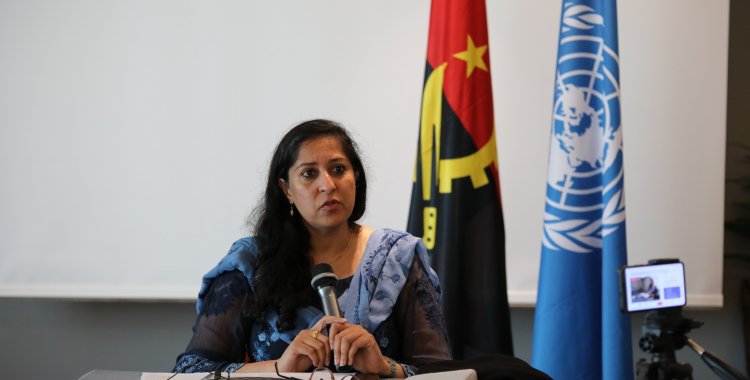The data comes from a preliminary report by the independent United Nations expert who assesses the effects of external debt on Human Rights, Attiya Waris, and was presented this Wednesday at the end of a visit to Angola, carried out between the 8th and 17th, at the invitation of the Government.
"Following a 27-year civil war that ended in 2002, Angola achieved relative political stability, but continues to struggle with socioeconomic fragility worsened by issues such as illicit financial flows and corruption, which significantly affect national revenues", concluded the independent expert.
Attiya Waris points out that Angola's great dependence on its oil sector has made the economy vulnerable to external shocks, "leading to challenges in macroeconomic stability and limited economic diversification", which would be crucial for the sustainable development of the economy.
Although she highlights the efforts made over the last five years, in terms of formalizing systems, strengthening macroeconomic management and improving governance in the public sector, the expert also highlights that "Angola continues to struggle with significant inequalities and difficult living conditions", since a large part of the population lives on less than one dollar a day.
"The loss of revenue during the previous administration resulted in the inability to make investments in social sectors, which led not only to limited infrastructure, but also to a low quality of education and health, making Angola one of the countries with the lowest human capital index (0.36 in 2020)", reads the document consulted by Lusa.
Consequently, "more than 25 percent of households have school-aged children who are not enrolled in the education system, suggesting a high risk of intergenerational poverty".
The expert expressed concern about the high poverty rate throughout the country, which makes Angola look like a low-income country (LDC) and not a middle-income country, as well as "the serious living conditions" in informal neighborhoods, which are deplorable, including the lack of food, drinking water and sanitation, and electricity.
Climate change that worsened the drought in the south of the country left 31.2 percent of the population in a situation of severe food insecurity in 2023, contributing to malnutrition or stunting, which is widespread in Angola, affecting around 43.6 percent of children under five years of age, as indicated in the preliminary report.
Attiya Waris found that there is a prevalence of malnutrition and cases of stunted growth in children under 15 years of age, suggesting deficiencies in social protection in this age group that represents the majority of the Angolan population, and criticized the fact that the school lunch program is not carried out in every school every day.
"In addition, food programs also increased before the elections and decreased after them in several cases", the report says.
Domestic violence, child abuse and exploitation, forced labor and sex trafficking, with cases of both national and foreign abductions, are other concerns of Attiya Waris.
In her preliminary observations on the way in which the country's fiscal resources have been used and how they contribute to the progressive realization of human rights, the expert advises that financial decisions support and maintain living standards, through transparency, accountability, responsibility, efficiency and effectiveness in a context of equity and justice.
However, she points out that public budgets and expenses in Angola are not available to citizens, arguing that the Government continues to include its citizens in financial decision-making.
On the other hand, she states "with appreciation that the Government of Angola located assets illegally removed from the country and encourages the State to implement its guidelines for the effective recovery of these assets", calling on the international community to support these efforts.
The report also addresses the removal of fuel subsidies, warning of the rise in food prices, which has negatively affected the most vulnerable population.
"The prices of basic necessities, such as eggs, have already increased by around 400 percent, which is one of the foods that traditionally constitutes a cheap form of protein, especially for children", she says.
The report ends with recommendations for the Government, encouraged to join "the debtors' club" and take the lead with Egypt in this initiative.
Attyia Waris also advocates incentives for the use of mobile banking services to "move the economy away from cash", reconsider fuel subsidies in order to reduce the cost of living, develop a child-friendly budget, create and maintain a children's register missing and ensure that all homes in Angola have access to electricity and water.
During the visit, the expert met with members of the Angolan executive, representatives of the financial and banking sector, international organizations, academics and civil society and visited several communities in Benguela and Luanda.
The full report of the visit will be presented at the 58th session of the UN Human Rights Council, in March 2025.
Independent experts are not UN employees and are part of the Human Rights Council's special procedures that aim to establish facts or monitor specific country situations.







